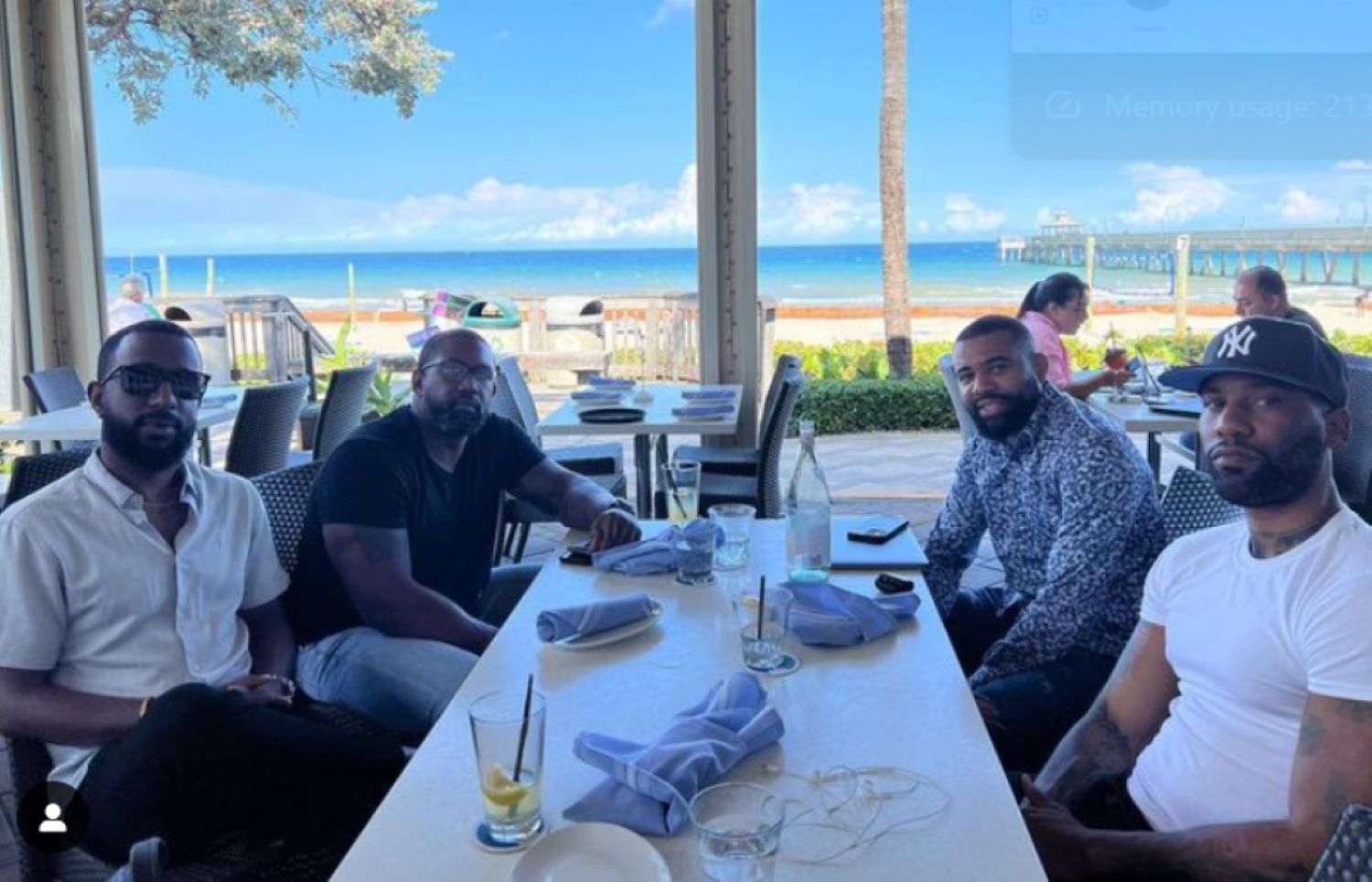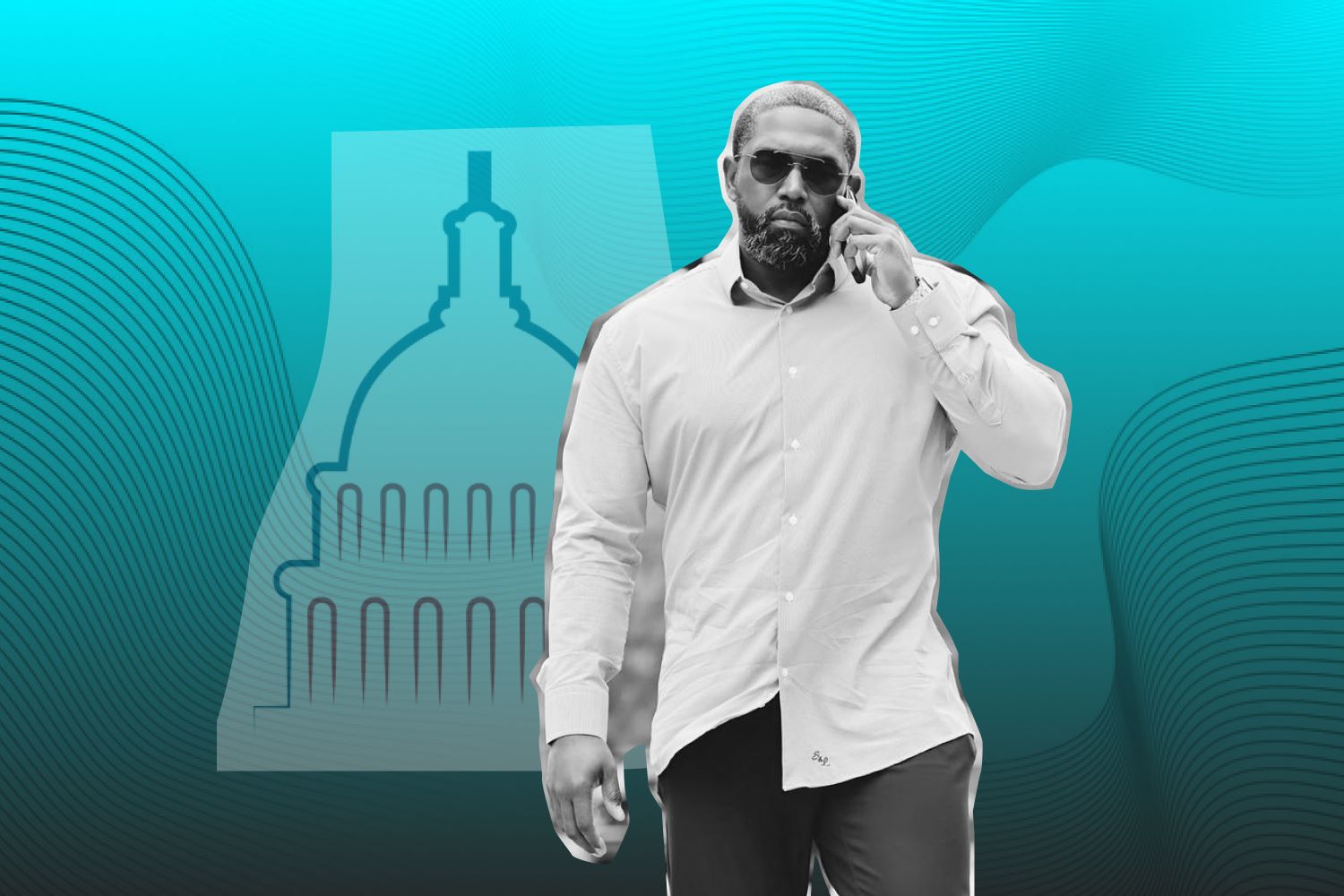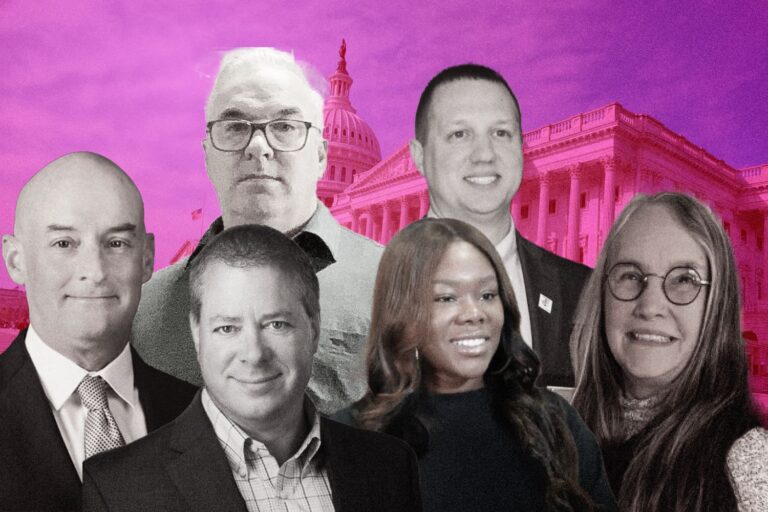Kevin Jennings: You can’t pay your way to the top in GovCon
Kevin Jennings, a seasoned entrepreneur whose journey into construction and government contracting began amid the fallout of the 2008 real estate downturn.
Uncertain about the future of his career, Jennings swiftly discovered a talent for securing contracts with both State and Federal Government agencies.
Let’s explore how adversity can pave the way for unexpected opportunities in business through Kevin Jennings’ path.
Kevin Jennings’ Journey into Government Contracting and Mentorship
Initially trained as a civil engineer, Jennings ventured into real estate during the booming years of the mid-2000s in South Florida.
“I was in real estate when I first got out of school, I went to school for civil engineering, I started working to become an engineer and then while I was working on construction sites, I got introduced to real estate,” said Kevin Jennings.
However, the financial crisis of 2008 dealt a significant blow to the real estate sector, prompting Jennings to seek new avenues for stable income. Drawing inspiration from his father, who had been involved in government contracting during the 1980s and early 1990s as part of the first wave of Black contractors, Jennings rekindled his interest in this sector.
“I needed to find a way to generate revenue, so that’s how I got reintroduced to the government contractor, and I say reintroduced because originally my father was involved in government contractor in the ’80s and early ’90s,” he said.
Jennings began with handling product supply contracts at first, but before long, he shifted gears into managing minor construction projects.
“I started out doing products and then I transitioned into doing minor construction, repair and alteration and what I would do is I would take my subcontractors that I used to flip houses and I started having them doing stuff, so my original clients were TSA at Fort Lauderdale Airport, then I had Coast Guard at Miami Beach, those were my original two clients,” he shared.

In the early stages, he focused on items like rubber gloves, booties, and hand sanitizer – critical supplies that ensured operational continuity and hygiene standards.
Initially handling smaller projects under $25,000, Jennings gradually scaled up operations to include larger construction projects, eventually venturing into design-build contracts.
In 2014, Jennings experienced a development when his father joined him in the business. Around the same time, he diversified further by entering the field of underground utility construction. While his father managed facility construction operations, Jennings focused on growing the underground utilities company.
“I opened the underground utilities company, and the underground utilities company is the company that I actually was fortunate enough to sell, so what we started doing was doing work here for the local municipalities with their water and sore issues, and then I was able to exit that company in 2017,” he stated.
After Kevin Jennings sold his underground utility business, he took some time to really think about what he wanted next. It was a period of deep reflection and exploration for him.
However, Jennings found himself at a crossroads unsure of his next move. As he contemplated his options, the COVID-19 pandemic hit in early 2020, disrupting industries worldwide. The onset of the pandemic coincided with a critical turning point for Jennings.
His former clients, predominantly cities and states, reached out to him directly for assistance. They were facing urgent needs exacerbated by the pandemic, but his previous company was unable to take on new projects due to COVID-related restrictions.
Recognizing an opportunity to fill a critical gap and support his clients during a time of crisis, Jennings decided to re-enter the utility business.
By February 2022, Jennings launched “The Government Cheese,” it represents Jennings’ commitment to teaching and coaching others in the intricacies of government contracting.
“I felt like there was a bigger purpose for me in business, and it wasn’t just going out and making more money, I was like this guy to be something greater, and I found a love and a passion for the teaching and the coaching space… that’s been my passion, honestly going on two years now is just the teaching and coaching space, I love being able to talk to people and help people,” he said.
How Kevin Jennings Thrived in Government Contracting
From his early days to his pivotal role in the utility sector, Jennings has consistently demonstrated an ability to adapt and thrive in challenging environments.
Strategic Approach to Networking Through Events
Jennings started networking from the ground up. He began by connecting with SCORE, where he had to meet with a mentor in person, face to face. From there, he got involved with the Small Business Administration and attended their events regularly.
“I started networking there with SCORE, with the SBA, I started going to a lot of the SBA events that they would have,” he stated.
Locally, Jennings tapped into the Chamber of Commerce, recognizing its significant role in supporting small and minority businesses within the community. He attended numerous local events and networking dinners.
“I was going to all of those different things and then another big one was the Society of American Military Engineers, so going to some of their stuff… the internet didn’t exist to what it is today, so we had everything that we had to do,” he shared.
“I was going to all conferences, every conference that was being held, I get to have my face out there,” he added.
A Balanced Portfolio: Mix of Federal and State Contract
Besides, Kevin Jennings’ background in underground utility and infrastructure work gives a glimpse into how funding and contracts move within the sector. Usually, the money starts from federal sources like the Environmental Protection Agency (EPA) or the Department of Transportation (DOT).
These agencies provide funds to state and local governments for particular projects. For example, the DOT might give money to state agencies for road projects, while the EPA supports local utilities with funding for water and sewer infrastructure.
Despite the funding source originating at the federal level, contracts are often administered by state and local governments.
“The money starts at the federal level when it flows down so the contracts sometimes are actually given out by the state and local, but they’re held to the same federal requirements,” he said.
“So, I had a mix of both, I had some directly from the federal and it’s some with the local governments using federal funded money,” he added.
For his underground utility business, Jennings highlights that a significant portion of the work is obtained at the local level. This sector thrives on funding that flows down from federal agencies like the EPA, which then goes through state and local governments for implementation.
“In the utility space and infrastructure, it’s everything because like I said, all the money comes down locally, I told all my students you want to have a good mix like everybody said you have a little bit of both and in that way you’re always straight,” he said.
Current Project Selection: Where His Focus Lies Today
Kevin Jennings has shifted his focus squarely onto infrastructure, recognizing significant opportunities ahead. Drawing from his extensive experience in the sector, Jennings notes that numerous projects, long delayed since the Obama administration, are now poised for action.
These projects, originally identified for repair or improvement, have become urgent due to aging infrastructure and increasing failures, transforming them from routine to critical ventures.
“There’s a lot of opportunity, there’s a backlog of opportunity and now we’re at the point where things that they decided that needed to be fixed in 2008 that weren’t fixed,” he said.
His focus spans multiple areas within infrastructure, including facilities and the emerging electric vehicle sector.
“There’s going to be a huge opportunity for electric vehicle charging stations…as we progress into the future and all cars become electric those larger government vehicles need places to charge,” he shared.
Promising Federal Agencies for Government Contracting Opportunities
In addition, Kevin Jennings identifies several key federal agencies poised to receive significant funding.
Additionally, the Department of Transportation (DOT), including agencies like Federal Highways and Lands, offers substantial funding for various transportation projects nationwide.
The Environmental Protection Agency (EPA) also plays a critical role, particularly in environmental infrastructure projects.
Despite these opportunities, Jennings acknowledges a common concern in government contracting: the impact of political cycles, particularly during election years.
Political Realities: Kevin Jennings’ Perspective as a Government Contractor
He openly admits that when he started working in government contracting, his political beliefs became less important. Instead, he focused on understanding how political cycles work.
This helps him predict how political changes can affect funding and project approvals, especially during election years.
During election periods, both political parties prioritize posturing over cooperation, which can delay decisions and stall progress on government initiatives. Despite this, he maintains a steadfast belief in the enduring need for contractors.
Regardless of political shifts or party affiliations, government agencies consistently rely on contractors to execute essential projects and services.
Kevin Jennings’ Perspective on SBA Scorecard
Moreover, Kevin Jennings is deeply motivated by the trends he observes in the industry, particularly through monitoring scorecards that track the number of certified firms.

For him, it’s not just about the dollar figures spent on contracts but rather the dwindling numbers of certified businesses in certain categories, which raises concerns about the future of opportunities for marginalized groups like women, minorities, and service-disabled veterans.
“For me, I look at the scorecards and I say all this to kind of go back to your last statement about is the industry saturated, so I monitor the scorecards and I just look at the numbers like how many certified firms are out there, I don’t really look at so much the spending part of it, I’m more worried about the numbers,” he said.
According to him, black and brown communities have only had about 40 to 50 years to establish themselves in this space, and women even less. If this decline continues, there may come a point where there are too few women and minority-owned businesses to justify government set-asides. Larger corporations could lobby to redirect these funds, arguing there aren’t enough qualified firms to support.
For instance, there are currently 12,000 women-owned businesses, but if the trend continues, there might only be 6,000 in five years. Similar declines are seen in small businesses and service-disabled veteran-owned firms, with potentially dire consequences for these communities.
He recognizes a troubling trend: while contract spending is increasing overall, the number of certified businesses is decreasing by 3 to 5% annually in most categories.
This situation deeply resonates with Jennings because he understands the historical struggle these groups have faced to gain equal footing in business opportunities.
Common Myths: Clearing Up Misconceptions
In Kevin Jennings’ perspective, it’s crucial to dismantle myths and clarify misunderstandings that hinder progress and opportunity in business and beyond.
“You Can’t Pay Your Way to the Top in Govcon”
One of the most pervasive misconceptions, according to Jennings, is the belief that one can “pay their way to the top.” He emphatically asserts that success in government contracting isn’t about financial shortcuts or buying influence.
Instead, it demands dedication, perseverance, and a proven track record of hard work. Government agencies prioritize trust and capability, making it essential for contractors to earn their reputation through merit and effort.
“You can’t think that you’re going to skip the line you got to put the work in because that’s what the government wants to see, they want to see how much work you put in to get to this point,” he said.
“It’s Not Easy”
Jennings also tackles the idea that government contracting is simple. He points out that it involves tough processes, strict rules, and a lot of competition for small businesses to handle.
Jennings emphasizes how crucial it is for small businesses to stay strong and dedicated, especially since only a small number are registered to work with the government.
“People think it’s easy… there’s a reason why there’s only 65,000 small businesses that are registered… there’s more businesses that are small, but you got to put the work in, it’s not easy, you got to jump through the hoops, you have to prove that you’re willing to do what it takes,” he stated.
Certification Does Not Guarantee Success
Moreover, Jennings critiques the belief that obtaining certifications guarantees success. He points out that while certifications can open doors, they are not a substitute for competence and readiness.
Holding a certification without the necessary skills and knowledge to deliver on contract requirements can lead to disappointment and missed opportunities.
“I hate when people say that ‘well I got XYZ certification, so I’m going to get all this work or I’m going be okay’, don’t just think that you can hold up a certification and that the world’s going to fall in your lap,” he said.

Jennings also stresses the importance of understanding how to effectively leverage certifications and articulate capabilities to build credibility and trust with government agencies.
Essential Advice for Govcon Success
Last but not least, Kevin Jennings offers invaluable advice to entrepreneurs entering the government contracting arena.
Finding Opportunities Across States: Keep Your Options Open
Kevin Jennings highlights the vast landscape of opportunities in government contracting, covering numerous states and regions across the country. Every state still holds immense potential for success in Govcon.
He noted that traditionally prominent states like California, Texas, and Florida attract significant Govcon activities both at the federal and state levels. However, Jennings stresses that some of the most lucrative opportunities can be found in unexpected places, such as the Midwest states like Montana, Wyoming, North Dakota, and South Dakota. These states, often overlooked, still have substantial funds allocated for contracting projects.
Jennings shares success stories of his students who have secured major contracts in less saturated markets, such as a student based in Detroit who landed a significant Blanket Purchase Agreement with the Army Corps of Engineers in Montana.
“I tell people don’t ever close anything off, every state there’s opportunities there,” he said.
Avoiding the Pitfalls of Mimicking
In addition, he cautions against the urge to mirror another person’s journey, emphasizing that each individual’s path to success is uniquely shaped by personal experiences, challenges, and opportunities.
“You can’t go try to rewrite my entire story as that’s not your story, the biggest thing is that people want to rewrite someone else’s story and that’s not realistic,” he stated.
In today’s age of social media and curated online personas, Jennings acknowledges the prevalence of “highlight reels” that showcase only the best moments of people’s lives.
“People only telling all of their highlights and then people are consuming the highlights…it’s like you want my story, because you want my end but you don’t want my journey, and so I would say that’s my biggest thing is that people are trying to mimic other people’s life but they only are trying to mimic what they see,” said Jennings.
Don’t Set Money as Your Only Goal
For Jennings, financial success is not the primary goal but rather a natural outcome of his dedication and commitment to delivering value.

“I think that’s a big problem that people have today is that their goal is just the financial benefit, and the problem is that, if you put the goal being the financial benefit, it’s never going to be enough, because if you make 100, you’re going to want make 200, if you make 200, you’re going to make 500, and you’re never going to be satisfied, you’re always going to be chasing the money,” he stated.
“For me, I love the gratification that I get, when we complete something and we do a task, and so that’s what keeps me going is that gratification, because I’m not chasing more of it, I just chasing the consistency of it, and that’s what it definitely keeps you going because getting the win, having the money come in is great, but then there are going to be times when somebody’s not winning,” he added.
Why You Need to Take Your Ego Out
Jennings urges newcomers to shed any ego-driven aspirations early on, emphasizing that success in government contracting requires a supportive mindset.
He criticizes those who enter the field with inflated egos, constantly seeking personal recognition rather than focusing on collaborative success. For Jennings, it’s essential to acknowledge that the true credit belongs to the government entities and their employees for whom the projects are ultimately executed.
While small businesses may occasionally receive recognition through awards or events facilitated by organizations like the SBA, Jennings advises against expecting fame or personal glorification. Instead, he advocates for a mindset that values contributing to the collective success of the project, allowing government agencies and employees to rightfully shine.
Opportunities in Blue-Collar Entrepreneurship
Kevin Jennings argues that the blue-collar sector of business is often overlooked but holds opportunities.
“Nowadays, everybody wants to be an influencer, everybody wants to be pretty… so I really want entrepreneurs to get back to the blue-collar side of it and understand that there’s a lot of opportunities,” he said.
“Especially now in industries like facilities, maintenance, janitorial services, there’s a lot of opportunities because nobody wants to do it, you can make a lot of money being a janitor nowadays,” he added.
In 2024, roles traditionally viewed as mundane or low status, such as janitorial work, now present lucrative opportunities.
The Importance of Doing Market Research
Kevin also stresses how crucial it is for entrepreneurs to conduct thorough research. He advises dedicating substantial time to market research, leveraging tools like USA Spending and FPDS to understand the landscape comprehensively.
“Once you can understand the players of this game, and you understand the rules of the game, how the game is being played, then you can play the game more effectively,” he said.
Furthermore, Kevin emphasizes the importance of actively using LinkedIn to pinpoint competitors and grasp their strategies. He encourages a proactive approach in gathering intelligence, neglecting research means missing out on valuable opportunities despite the wealth of resources available.









